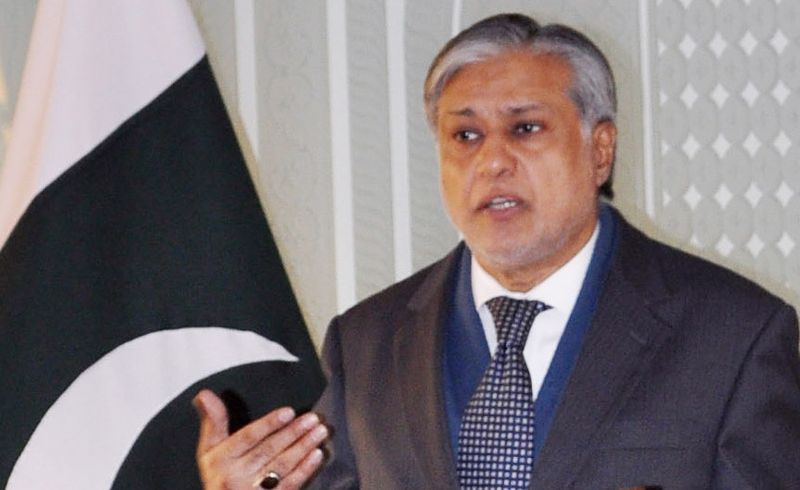
Finance Minister Ishaq Dar on Friday made no bones about being miffed at a ratings downgrade by Moody’s, saying he "strongly contests" the claim.
The minister added the country had adequate liquidity and financing arrangements to meet its external liabilities despite being hit by catastrophic floods.
The minister’s reaction came as Moody’s cut Pakistan’s sovereign credit rating on Thursday by one notch further into junk territory to Caa1 from B3. It cited increased government liquidity and external vulnerability risks in the wake of floods in August that killed more than 1,600 people and caused billions of dollars in damage.
“There’s no need to worry,” Dar said while talking to the media outside an accountability court. He said ratings are only relevant when a country is seeking to tap the global debt market, and Pakistan was not planning to issue any such instruments at the moment.
“We first have to fix our economic indicators,” Dar said.
“They (Moody’s officials) have to meet me. I told them if you don’t [reverse] this, I will give you a befitting response in our meeting next week,” the minister said.
Dar said he had spoken to the agency’s officials and told them that they “should not have done it”.
The finance czar claimed that he would give a “proper answer to each reasoning” upon which Moody’s rated the country. “There are three such rating agencies in the world, one of which has also downgraded the UK’s credit rating.”
He elaborated that the rating was not changed in a day and must have been in process for months, adding that once the indicators were in Moody's system, it was hard to ‘reverse them’. “We now have to improve our economic indicators”, he said.
The newly-appointed finance minister highlighted that he had asked Moody’s to “make room” for Pakistan, and assured that “otherwise” he would seek answers in his meeting with the credit rating agency next week.
Commenting on the value of the rupee against the US dollar, Dar said that he has stated earlier that "the real value of the dollar” should not be as high as it is currently, reiterating that the “exact value” of the dollar was below Rs200.
Dar also stated that Pakistan’s export industry was very important and should be earning in USD. However, he also urged people to “stop thinking in dollar terms” as the rupee would appreciate.
The minister further said that the country's debt of Rs2,600 billion can be reduced, and if done “properly”, Pakistan had a “bright future”.
Lauding the efforts of the incumbent coalition government, Dar said the Pakistan Democratic Movement (PDM) – an amalgamation of the PPP, PML-N and several other political parties – worked day and night to better economic conditions. He pointed out that shortly after he took over, petrol prices were reduced.
“I have never opposed accountability. If anyone, including me, has done something wrong then they should be held accountable,” the finance minister said.
He added, however, that the director general of the Federal Investigation Agency (DG FIA) could not be summoned and asked to take action against people.
Dar claimed that at the time of the Panama Papers scandal, Pakistan’s inflation was at 2 per cent and the rupee was stable. He alleged that “Panama was a fraud”.
Concerns are rising over the health of Pakistan's economy as foreign exchange reserves run low, the local currency weakens and inflation stands at decades-high levels despite the resumption of an International Monetary Fund funding programme in August.
Worries centre around its ability to pay for imports such as energy and food and to meet sovereign debt obligations. Data this week showed foreign exchange reserves at the central bank stood at $7.9 billion. That covers imports for barely a month.
(With additional input from Reuters)



1731486962-0/liam-(10)1731486962-0-165x106.webp)


1731489300-0/Copy-of-Untitled-(36)1731489300-0-270x192.webp)

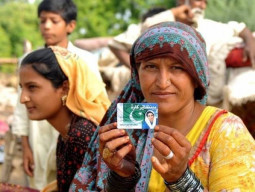


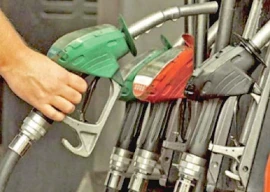
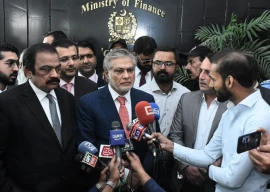

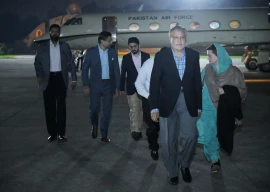
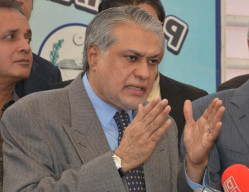






COMMENTS
Comments are moderated and generally will be posted if they are on-topic and not abusive.
For more information, please see our Comments FAQ